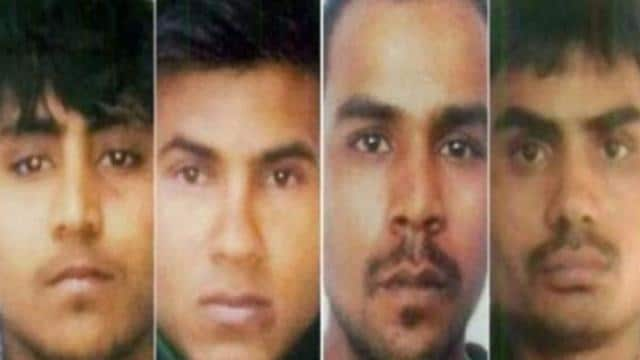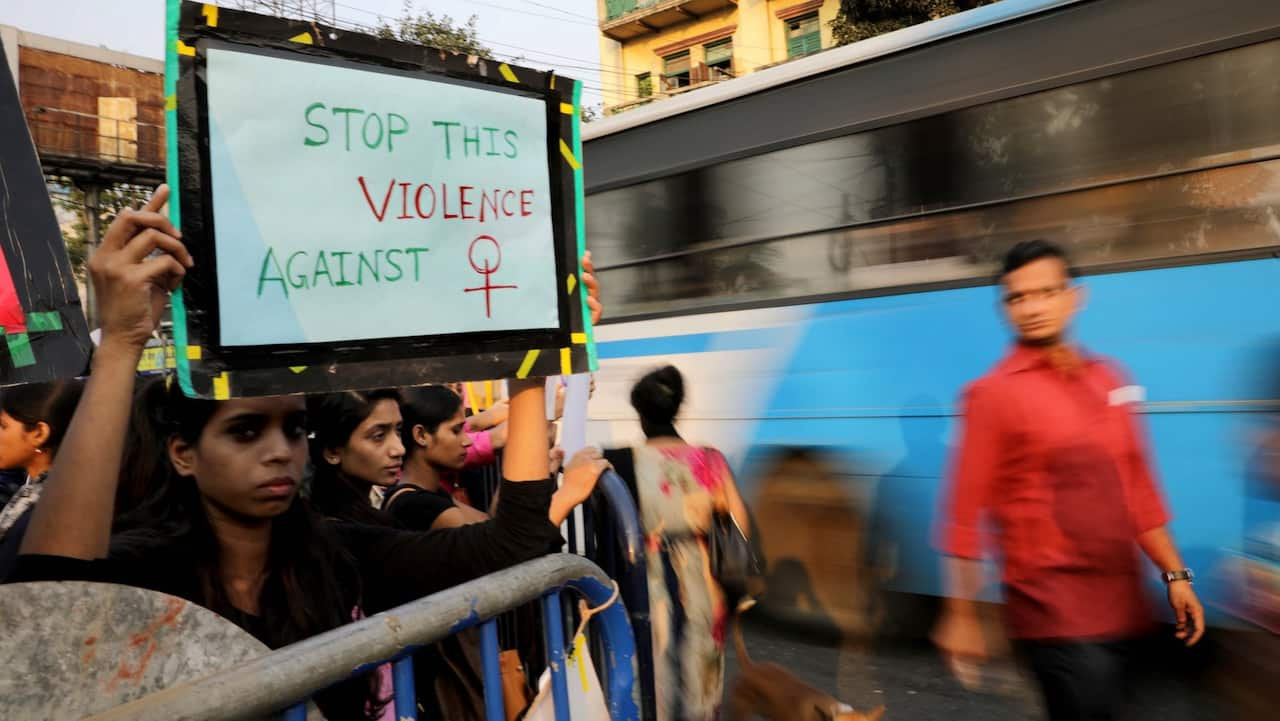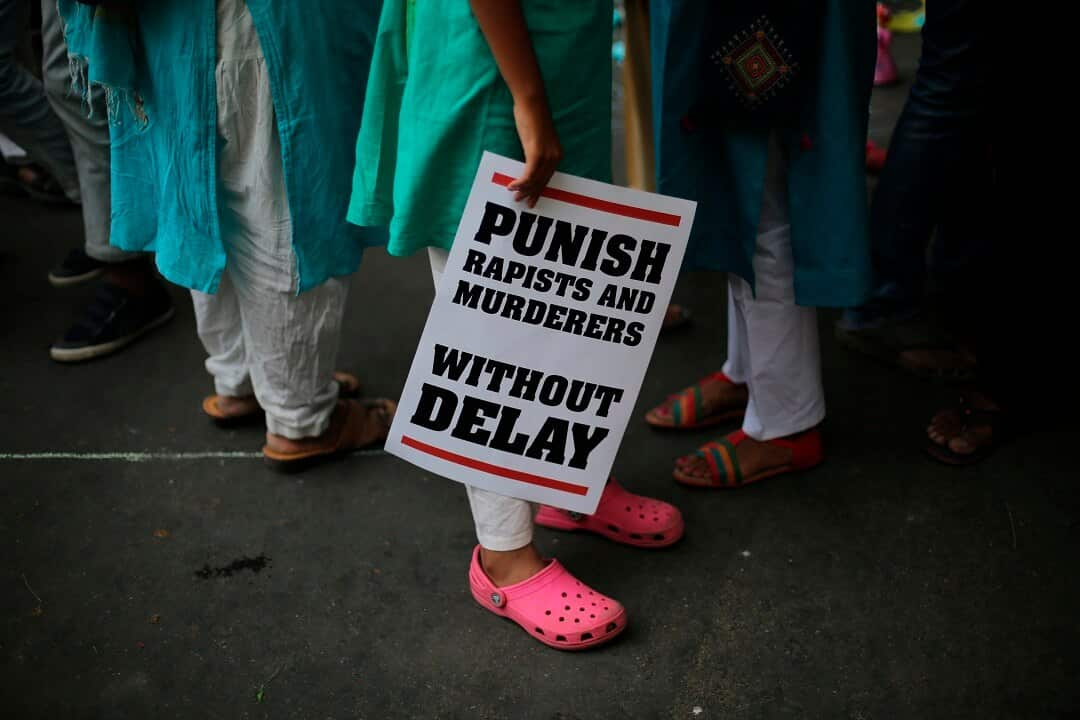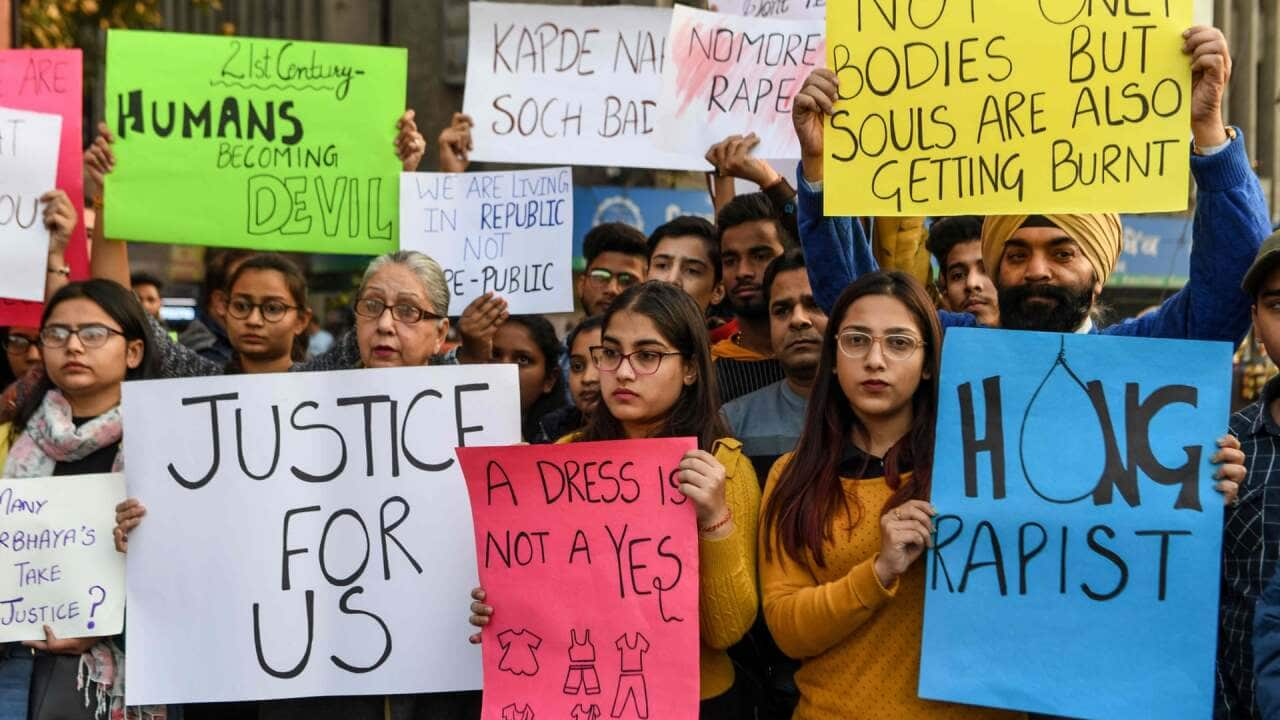Seven years after the brutal gangrape and murder of a 23-year-old medical student in India’s capital New Delhi, the court has set the execution date for the four convicts.
A Delhi court on Tuesday said that the four accused, Mukesh Singh, Pawan Gupta, Vinay Sharma and Akshay Kumar Singh will be hanged at 7 am (IST) on January 22 at Tihar Jail.

Four men convicted in Nirbhaya gang rape case to be hanged on January 22, 2020. Source: Delhi Police
The victim who was dubbed as ‘Nirbhaya’, meaning fearless by the Indian media, died 13 days after she was raped in a moving bus on the night of December 16, 2012.
The incident that shook the entire nation, sparking nationwide protests, global outrage and led to India passing stricter anti-rape laws, owing to the staggering brutality of its perpetrators has once again evoked intense reactions from across the globe.
SBS Punjabi spoke to some of Australia’s Indian-origin women activists and professionals and here’s what they have to say about the impending execution and continued acts of violence against women:
‘Indian men need to change their attitudes towards women’
Kittu Randhawa, who provides frontline care and support to victims of family violence in Sydney said a country that prides itself on family values needs to end this tide of violence against women.
“It’s about time this Delhi rape case came to a conclusion and allowed the family to finally grieve properly. The shame of the nation is that it has done little to change the attitudes of men in India," said Ms Randhawa.

Activists protest against rape cases in different Indian cities, in Kolkata, India, 09 December 2019. Source: AAP Image/EPA/PIYAL ADHIKARY
However, she warned that “Australia is not like India,” and it is not common for criminals to go scrot free in this part of the world.
“While some may get away with it, a growing number are seeing the insides of Australia’s prison system,” added Ms Randhawa.
‘Gender specialists in police and dedicated correction services is the need of the hour’
Dr Madhumita Iyengar, Chair of Canberra-based organisation, Initiatives For Women in Need (IWiN) called the judgment ‘historic’.
“It is historic in the sense that it shows that violence against women is unacceptable in India and perpetrators do get punished.”
But she added that the recent gangrape of a young doctor near Hyderabad in southern India indicates that not much has changed on the ground.
“Social attitudes towards women in some men have not changed much.
"So I feel that along with an improved legal system, India needs to induct more gender-specific police force, establish correction services, ensure compulsory education for boys and specific programs for perpetrators like the ones run by Australian NGOs must be introduced,” added Dr Iyengar.

Students protesting against increasing incidents of violence against women in India. Source: AAP
Satyendra Rai, an IT professional based in Melbourne said women safety should be the top priority of any healthy society.
“Women are our sisters, mothers, daughters and partners. Men should be sensitised about their safety. The police should be robust in providing them with the necessary protection and the legal system should be swift in serving justice to all those who have been victimised,” said Mr Rai.
‘Justice delayed is justice denied’
Kartik Zala, a conveyance manager also based in Melbourne said justice must not be delayed at any cost.
“There must be fast track decisions. Anything longer than two years is a long wait for the victims and their families. India must educate men and raise awareness about women's safety,” said Mr Zala.

An Indian protester stands with a placard during a protest after recently reported rape cases. Source: AAP
Simreet Thukral, a customer care executive in Melbourne who was working in Delhi at the time of the incident and had actively taken part in the subsequent protests said she would only feel safe if there were no more Nirbhayas in the world.
“Women suffer, many unfortunate ones like Nirbhaya and the recent case of a doctor in Hyderabad end up dead on the roads. Justice may have been finally delivered, but the fight has just begun.
“I will only feel safer travelling on Indian roads the day I'd feel that women do not need protection from men who ogle at us in trains, on roads and everywhere we go.
“For that to happen, Indian men need to change their mindsets to ensure none of India’s daughters faces what Nirbhaya had to endure. Only then justice will be served in the real sense,” added Ms Thukral.



